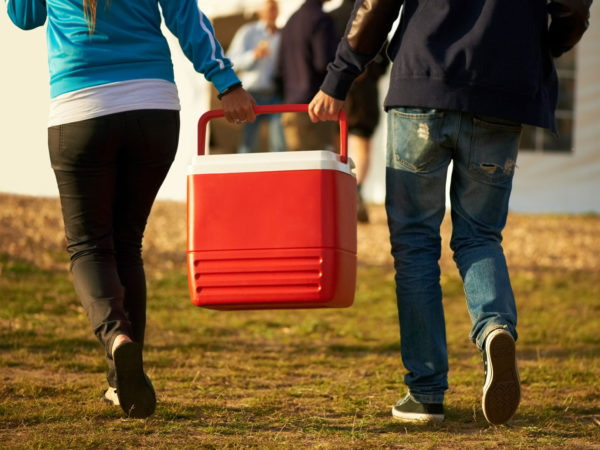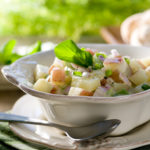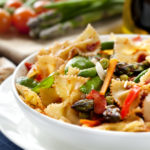Perils of Picnics?
Last July Fourth we had a picnic and several people got sick, apparently from spoiled food. Any suggestions for safe, healthy picnics?
Andrew Weil, M.D. | July 1, 2019

The combination of hot weather and lack of refrigeration can turn a holiday picnic into a miserable experience. According to Eatright.org, a website of the Academy of Nutrition and Dietetics, one in six Americans gets sick every year from foodborne pathogens. Because bacteria (usually Salmonella, E. coli, or Staphylococcus aureus) multiply quickly when food is left unrefrigerated, you should keep all cooked food or food you plan to cook in an insulated cooler with enough ice to hold it at 40 degrees F.
Be particularly careful of salads containing potatoes, eggs, pasta, meat or fish that are combined with mayonnaise. These foods are ideal media for the growth of bacteria that can make you very sick with nausea, vomiting, cramps, diarrhea, fever, and headache. The mayo itself usually isn’t the problem – commercially produced mayonnaise is made with pasteurized eggs and contains vinegar and lemon juice that provide enough acidity to discourage bacterial growth. However, potatoes, pasta, meat and fish can reduce the acidity and encourage germs to proliferate in the mixture. And, of course, you can run into even more trouble with homemade mayo containing fresh eggs. In any event, thoroughly chill all salad ingredients (including mayo) before you combine them and keep the salads on ice or in the cooler at 40 degrees F. After serving, don’t leave salads on the picnic table – return them to the cooler immediately.
Here are some other food safety tips:
- Carry your cooler in the air-conditioned car, not the trunk, and at the picnic site put it in the shade with the lid closed. Replace melted ice.
- Rinse fresh fruits and vegetables under running water at home before packing them in the cooler — including those with skins and rinds that are not eaten. Rub firm-skinned fruits and vegetables under running tap water or scrub with a clean vegetable brush while rinsing with running tap water. Dry fruits and vegetables with a clean cloth or paper towel. Packaged fruits and vegetables labeled “ready-to-eat,” “washed,” or “triple washed” need not be washed.
- Thaw meat before grilling so that it cooks evenly.
- Cook meat to 160 degrees F (until the center is no longer pink), poultry to 180 degrees F, and ground poultry to 165 degrees F. Check temperature with a meat thermometer.
- Put leftovers in the cooler soon after grilling or serving.
- Don’t eat any cooked food (including take-out) left unrefrigerated for more than an hour.
- Don’t put cooked meat on a plate that has held raw meat.
- Wash your hands with hot, soapy water before and after handling food and after using the bathroom. If running water is not available, bring hand sanitizer or wet wipes in order to keep your hands clean. Reportedly, nearly half of all foodborne illnesses could be eliminated if people would wash their hands more often when preparing food.
- Consider packing beverages in one cooler and perishable foods in another so that the perishables won’t be exposed to warm outdoor air when people open the food container to replenish their drinks.
Andrew Weil M.D.
Source:
Barbara Gordon, RDN, LD, “How to Prevent 7 Picnic Food Safety Mistakes,” Academy of Nutrition and Dietetics, January 30, 2018, eatright.org/health/lifestyle/seasonal/how-to-prevent-7-picnic-food-safety-mistakes












